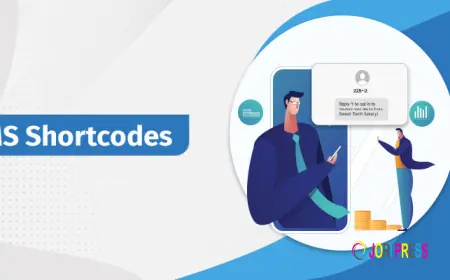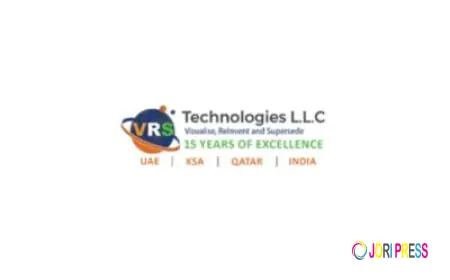One-Time vs. Recurring Fees: The True Saber Certificate Cost
Understand the real saber certificate cost by breaking down one-time fees, annual renewals, and hidden charges importers face when trading in Saudi Arabia.

For businesses looking to export or sell products in Saudi Arabia, the saber certificate is more than a formality — it’s a compliance necessity that keeps shipments moving and avoids customs delays. Yet for many importers and manufacturers, the real saber certificate cost remains unclear, especially when distinguishing between one-time and recurring fees.
In this article, we’ll explore what costs to expect, why they differ by product, and how to plan your budget without surprises — so you can navigate Saudi Arabia’s compliance landscape confidently.
? What Is the Saber Certificate? A Quick Recap
Before diving into costs, let’s briefly recap what the saber certificate is:
The Saber platform is Saudi Arabia’s electronic conformity assessment system, launched to replace manual certificates of conformity (CoC). It aims to:
✅ Ensure imported and locally manufactured products meet Saudi standards
✅ Protect consumers from unsafe or counterfeit goods
✅ Speed up customs clearance through digital documentation
To import regulated products, businesses must obtain two key certificates via SABER:
-
Product Certificate of Conformity (PCoC): Confirms that a specific product complies with Saudi standards.
-
Shipment Certificate of Conformity (SCoC): Issued for each shipment of that product.
Understanding these two certificates is central to understanding the full saber certificate cost.
? One-Time Fees: What They Cover
One-time fees mainly relate to the Product Certificate of Conformity (PCoC):
-
Usually valid for 1 year
-
Paid once per product per brand/model
-
Covers testing, documentation review, and approval by a conformity assessment body (CAB)
For example, if you sell two models of electrical kettles under the same brand, you would typically need two separate PCoCs — and pay the one-time fees for each.
Key points:
✅ You only pay this fee again if your product changes significantly or after the certificate expires.
✅ One-time costs often include testing fees if new lab reports are required.
? Recurring Fees: The Often Overlooked Costs
The most common recurring cost comes from the Shipment Certificate of Conformity (SCoC):
-
Required for every shipment, even for identical products already certified
-
Covers administrative review and system issuance
-
Charged per shipment, not per item
For businesses importing frequently, these recurring SCoC fees can add up quickly — sometimes becoming the largest share of total saber certificate cost.
Other recurring costs can include:
✅ Annual renewal of PCoC
✅ New testing if product standards change
✅ Service fees charged by customs brokers or agents managing SABER
? Where the Saber Certificate Cost Appears in Your Budget
For importers, the saber certificate cost usually appears in:
-
Compliance & certification budget
-
Freight and customs clearance budget
-
Annual budgeting for recurring certificates and renewals
While individual fees may look small, ignoring them can disrupt margins, especially for SMEs.
To plan accurately:
✅ Map out expected shipment frequency per year
✅ Include SCoC cost in landed cost calculations
✅ Budget for PCoC renewal and potential testing fees
? Why Saber Certificate Cost Isn’t the Same for Everyone
Multiple factors affect your final saber certificate cost:
-
Product category and risk level: High-risk products often require more rigorous testing.
-
Number of models and variants: Each unique product may need its own PCoC.
-
Frequency of shipments: More shipments = more SCoCs.
-
Choice of conformity assessment body (CAB): Fees can vary slightly between approved providers.
If you’re new to the process, working with an experienced local agent can help estimate your real annual cost based on shipment plans.
? Annual Renewal: The Quiet Recurring Fee
Many importers forget that a PCoC must usually be renewed annually. While it doesn’t always require repeat lab tests if the product hasn’t changed, there’s typically:
-
A renewal fee paid to the CAB
-
Administrative fees for updating SABER records
Missing the renewal deadline can delay shipments until the new certificate is approved.
⚖️ One-Time vs. Recurring: Which Has Bigger Impact?
For low-volume, occasional importers:
✅ One-time fees (PCoC and initial testing) can feel significant.
For high-volume importers:
✅ Recurring SCoC fees quickly outweigh the initial cost.
The real saber certificate cost depends on your business model: frequency, product variety, and shipment size.
? Tips to Reduce Saber Certificate Cost Without Risk
-
Consolidate shipments: Fewer, larger shipments mean fewer SCoC fees.
-
Align models & specifications: Minimize variants to reduce the number of required PCoCs.
-
Plan renewals early: Avoid urgent testing or last-minute CAB fees.
-
Use updated lab reports: Keep documentation ready to reduce new testing costs.
? Why It Pays to Plan Ahead
Ignoring the saber certificate cost doesn’t save money; it risks:
✅ Shipment delays
✅ Storage fees at port
✅ Fines for non-compliance
By budgeting both one-time and recurring fees, you gain predictability — and protect your brand reputation in the Saudi market.
✅ Conclusion: The Real Saber Certificate Cost Is Both Fixed and Flexible
While the saber certificate cost includes unavoidable fixed fees, it also depends on your choices: shipment frequency, product variety, and timing.
By understanding the difference between one-time PCoC costs and recurring SCoC fees, your business can:
-
Forecast costs more accurately
-
Keep supply chains running smoothly
-
Stay compliant without overspending
Whether you’re launching in Saudi Arabia or scaling up, clarity about these costs helps turn compliance from a surprise expense into a planned investment in growth.
What's Your Reaction?
 Like
0
Like
0
 Dislike
0
Dislike
0
 Love
0
Love
0
 Funny
0
Funny
0
 Angry
0
Angry
0
 Sad
0
Sad
0
 Wow
0
Wow
0













































